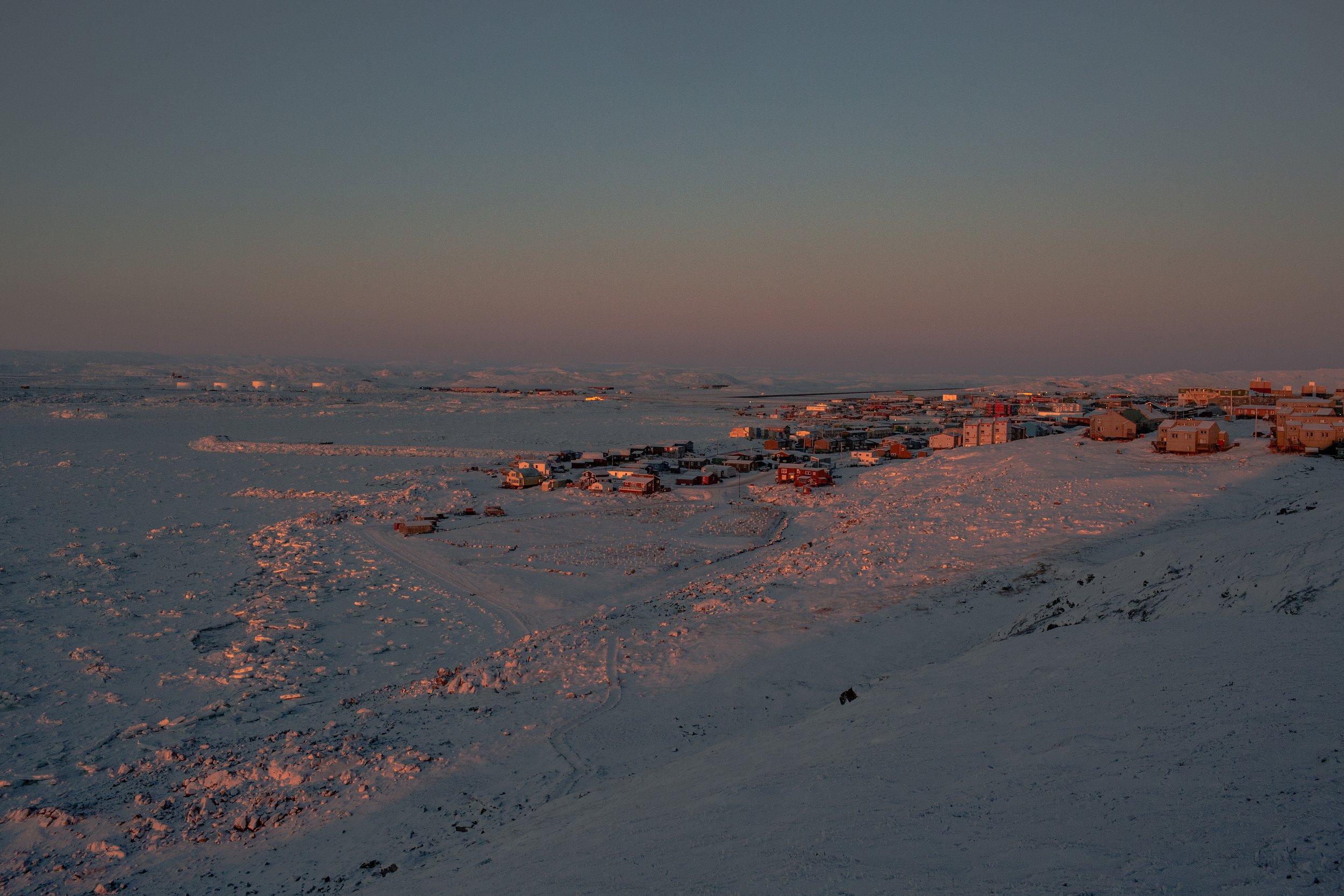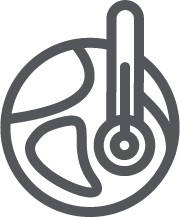
Food
justice
for all.
Food insecurity across Inuit Nunangat and northern communities has reached a crisis point and COVID-19 has made it worse.
79% of children in Nunavut live in food insecure households.
All of us deserve food security. The Illunnata campaign stands in solidarity with PSAC members and their communities to demand better food systems. Among northerners, Indigenous communities are especially at risk of being food insecure. Help draw attention to northern food insecurity and call for federal support for solutions that are Inuit and community-led.

HUNGRY
FOR
JUSTICE
Illunnata means
“all of us”
in Inuktut
because all of us deserve food security.
The Illunnata campaign for food security across Inuit Nunangat and northern communities started from a resolution passed at a Public Service Alliance of Canada (PSAC) convention in support of PSAC members and their communities. The resolution called for a campaign to lobby public authorities to redesign the Nutrition North Canada Program to provide greater access to traditional and country foods and make food more affordable in grocery stores across northern communities.
The Illunnata campaign invites PSAC members and their communities to show Canadians what northern food insecurity looks like and turn this awareness into action.
Learn how you can help.

FOOD INSECURITY ACROSS INUIT NUNANGAT AND NORTHERN COMMUNITIES
76% of Inuit aged
15 and over experience food insecurity.
In 2017-2018, household food insecurity was 16.9% in the Yukon, 21.6% in the Northwest Territories and 57% in Nunavut, compared to 12.7% for the rest of Canada. That was pre-pandemic and COVID-19 has made it worse.
Causes OF FOOD INSECURITY
The causes of northern food insecurity are numerous and complex. Colonialism brought new diseases and forced the adoption of European culture, resulting in a diminished Inuit population and weakened ties to traditional and sustainable ways of living.
Today, the lasting effects of colonialism on northern food insecurity are compounded by climate change, household financial hardship and inadequate food supply distribution systems.
Legacy of colonialism
Inuit have been living in Canada’s north for over 4,000 years and relied on the environment for food, clothing and shelter. By the 1950s, government-imposed assimilation forced the Inuit out of their traditional way of living into an unfamiliar “modernized” life.
Policies like the residential school system caused generational loss of traditional hunting knowledge. Other policies excluded Indigenous perspectives, restricted the ability for Indigenous hunters to earn a living, and imposed an impractical and unsustainable western diet. The legacy of colonialism continues to harm northern and Indigenous food security.
Food insecurity, along with other socioeconomic disadvantages, is also an important risk factor in suicide among Inuit according to a recent study from McGill University.
Climate
change
Subsistence hunting and a culture of sharing food are central food practices among northern communities. However, climate change is harming northern food security. Changes to the environment have affected the availability of wildlife, while rising temperatures and lack of snow makes hunting more difficult. Worse yet, global pollution accumulates and makes its way into the country foods in the North.
Poverty
Before the pandemic, the average family of four in the North spent up to $20k a year and the cost of food is only going up. Meanwhile, present policies that address northern food insecurity focus on the cost of food and don’t address root causes such as low education, lack of employment opportunities, cost of living, poverty, access and availability of country foods.
Food systems
Current food systems that (under)serve northern communities are unsustainable. Food must be trucked or flown into northern communities from the south, resulting in high transportation costs. Reliance on colonial food systems also increases with climate change.
on-reserve food insecurity rates
of over 70%.
On-reserve Indigenous households in Northern Manitoba and Northern Ontario have been documented to have food insecurity rates of over 70%.
Source: Food Secure Canada

How we achieve northern food security
The primary federal effort to address northern food insecurity (the Nutrition North food subsidy program) has been highly criticized as incomplete, unsustainable and ineffective to support Indigenous self-determination.
Since every region has its own unique context, solutions to northern food insecurity must be: Indigenous and community-led; informed by Indigenous knowledge; and support local economic development. Solutions to strengthen northern food security must reflect societal values of the region — and cannot be one-size-fits-all.
Country foods
Animals like caribou, ptarmigan, arctic char and seal are regular staples in the northern diet. Moose, deer, and black bears are also important to subsistence hunting in northern regions. Hunting is also closely tied to food sharing, which is particularly important for households in need — such as the elderly or those with low income.
Resilience
Inuit-led and community-based initiatives are important for ensuring food security in the North. These projects make hunting more accessible, promote traditional hunting knowledge and food sharing networks, support community kitchens and growing food, and more.
Additional resources
Inuit Tapiriit Kanatami
The national representational organization protecting and advancing the rights and interests of Inuit in Canada
Nunavut Food Security Coalition
An alliance between 25 communities in Nunavut to address regional food insecurity
Feeding Nunavut
Non-profit that raises awareness about food insecurity and challenging living conditions in Nunavut
Food Secure Canada
An alliance of organizations and individuals across Canada working to advance food security and food sovereignty
PROOF
An interdisciplinary research team that investigates and reports on household food insecurity in Canada

Help end food insecurity across Inuit Nunangat and northern communities.
To achieve real change, we need more Canadians to see the realities of northern food insecurity.
Share
your
story
A picture says a thousand words. Submit photos showing what food insecurity looks like in the North — grocery store price signs, sticker tags of food prices, grocery receipts, examples of what $100 can buy. Show the rest of Canada what food insecurity looks like for you.
Spread
the Word
The more people that get involved, the louder our voice will be. To achieve self-determination over food and wellbeing, all of us must unite to demand food justice for all.
Download the Illunnata toolkit

get in touch
Public Service Alliance of Canada
233 Gilmour Street,
Ottawa, Ontario, K2P 0P1
1-888-604-PSAC (7722),
info@psac-afpc.com
psacunion.ca
Photography featured in the Illunnata campaign is licensed and features communities and landscapes in Inuit Nunangat and northern communities in Canada.














